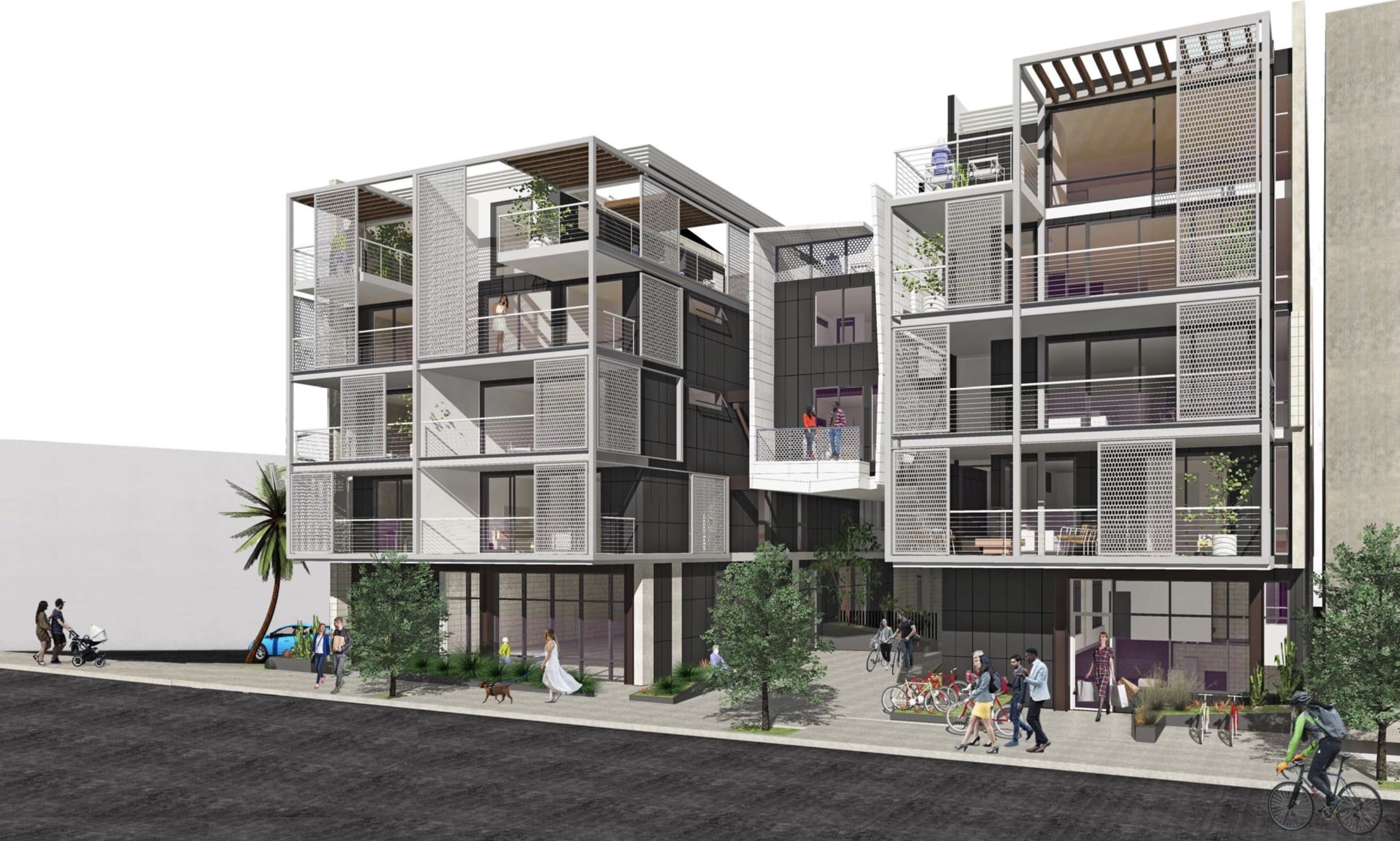FHA and VA loans play a pivotal role in making homeownership possible for millions of Americans. These government-backed mortgages are especially valuable for first-time buyers, military families, and those seeking more flexible credit or down payment requirements.
But unlike conventional financing, FHA and VA loans come with a unique challenge: the entire condominium project must be approved before an individual unit can qualify.
This presents a significant issue for mixed-use developments, especially those with a high percentage of commercial space—such as condos located above retail shops, cafes, medical offices, or coworking spaces.
As more cities lean into smart-growth strategies and walkable neighborhoods, the number of condos with significant commercial components has increased. And so has the confusion about whether they can qualify for government-backed financing.
The truth is that yes, condos with high commercial use can still qualify for FHA or VA loans, but the approval process is more nuanced and demands specialized knowledge.
The Commercial Use Challenge in FHA and VA Condo Approval
Government agencies such as the Federal Housing Administration and the Department of Veterans Affairs designed their condo approval systems to protect buyers and ensure stability within residential communities. However, their regulations can appear inflexible—particularly when commercial elements are involved.
The concern is simple: when too much of a condo project is designated for commercial use, it may no longer be considered “primarily residential,” which violates FHA and VA standards. These agencies are tasked with minimizing financial risk. From their perspective, more commercial space often means more market volatility.
The defining question becomes: At what point does a condo stop being residential and start being commercial?
The answer depends not only on the square footage but on how the development is structured, financed, governed, and maintained.
FHA Loan Rules on Commercial Space in Condos
Traditionally, the FHA imposed a hard limit on commercial space: no more than 25% of the total floor area could be designated for commercial use.
However, recognizing the evolving landscape of urban development, the FHA updated its guidelines in recent years to be more flexible under certain conditions.
Today, FHA allows:
-
Up to 35% commercial space as long as the project demonstrates residential dominance and financial stability
-
Up to 49% commercial use if an in-depth waiver request is approved, accompanied by supporting documentation that addresses risk factors and financial exposure
These expanded thresholds are not automatic approvals. They require a strong case, expert packaging of application materials, and often, back-and-forth communication with HUD reviewers.
One of the most common reasons a project is denied FHA approval is that the commercial use is not clearly separated or disclosed, or the HOA appears to depend financially on commercial tenants.
What About VA Loans and Commercial Space?
The Department of Veterans Affairs is less prescriptive in terms of percentages, but it still imposes strict scrutiny on projects with high commercial use. The VA doesn’t set a specific cap like FHA, but instead evaluates whether the project maintains a “primarily residential character.”
If a development includes multiple restaurants, retail storefronts, or even offices that occupy a substantial portion of the building, the VA will evaluate whether these spaces materially affect the residential nature of the property.
Approval is more likely when:
-
Commercial units are located on the ground floor or a separate wing
-
Residential and commercial entities have separate entrances and governance
-
Common areas are clearly designated for residential use only
-
The HOA maintains financial independence from the commercial units
In short, if the VA determines that the commercial use of the property dominates or interferes with residential enjoyment, it will likely deny approval.
Common Misconceptions About Condo Loan Eligibility
A persistent myth is that if a condo building has more than 25% or 35% commercial space, it’s automatically disqualified. That’s not true.
Another misconception is that only brand-new buildings can qualify for FHA or VA approval. In fact, existing condominium projects, including older buildings and established communities, can be approved if they meet the guidelines.
The biggest misunderstanding? That a single denied application means the condo will never be eligible again. This is also false. Many rejections are due to documentation gaps, outdated bylaws, or poor presentation, all of which can be corrected.
What Lenders and Agencies Are Really Evaluating
In addition to measuring the square footage of commercial use, FHA and VA reviewers dig into the following:
Physical Layout and Separation
Is there a clear boundary between commercial and residential spaces? Ideally, commercial areas should be physically separated—either on another floor, in another building, or isolated with independent entrances and exits.
Legal Ownership and Control
Who owns the commercial units? If they are held and maintained separately from the HOA, it reduces liability and simplifies compliance. The HOA should not be responsible for the upkeep, insurance, or revenue management of commercial spaces.
Financial Risk
Is the HOA’s budget dependent on commercial rents or shared maintenance fees? Lenders and agencies prefer that all operating expenses and reserves be funded by the residential owners alone. If commercial failure would impact the HOA’s solvency, that’s a red flag.
Insurance Coverage
FHA and VA want to confirm that the insurance policy adequately covers all residential units and common areas and that commercial operations do not create excessive liability.
Owner Occupancy
A high owner-occupancy ratio is a strong indicator of a stable and desirable residential community. Both agencies prefer at least 50% of the units to be owner-occupied.
How to Increase FHA or VA Loan Approval Odds for Mixed-Use Condos
Navigating FHA and VA approval for condos with high commercial use requires strategic action. The more organized and proactive your documentation, the better your chances.
Steps that can improve approval odds:
-
Amend governing documents to clarify the separation between residential and commercial ownership
-
Update HOA financial statements to show sufficient reserves and a balanced budget independent of commercial income
-
Provide architectural layouts that visually separate residential and commercial components
-
Include narratives or impact statements that explain how commercial use benefits rather than burdens residents
-
Maintain solid insurance policies that do not create exposure due to commercial tenants
Why Partnering with Approval Specialists Matters
Achieving FHA or VA condo approval isn’t just about meeting the technical standards. It’s about presenting your community in the right way—to the right people—with the right supporting materials.
That’s where professionals come in.
Working with a team that understands FHA and VA processes can mean the difference between rejection and approval. Specialists in condo approvals know how to:
-
Analyze your project’s structure against FHA and VA thresholds
-
Identify risks and prepare mitigation strategies
-
Coordinate with HOAs, attorneys, and developers to amend documents
-
Compile and submit fully compliant applications
-
Respond quickly and effectively to agency feedback or denials
Instead of guessing what might work, experienced approval professionals bring clarity and confidence to a process that’s often misunderstood.
Don’t Let Commercial Space Stand in the Way of Loan Approval
As mixed-use developments become the norm in modern real estate, the line between residential and commercial isn’t always clean. But with thoughtful planning, proactive compliance, and expert support, even condos with significant commercial components can become fully FHA- and VA-approved.
By securing this type of approval, you unlock a larger pool of buyers, protect resale value, and create more stable communities for current and future residents.
Whether you’re a board member, developer, property manager, or owner, now is the time to evaluate your condo’s eligibility—and to take steps that put approval within reach.
Ready to Get Your Condo FHA or VA Approved?
If your condo community has been told it’s not eligible for FHA or VA loans due to commercial use, it’s time to take a second look. Condo Approval Professionals specialize in helping mixed-use developments secure government-backed financing eligibility.
Reach out today for expert guidance on the FHA condo approval process and discover how your property can meet federal standards—even with high commercial use. Let us help you make government loan eligibility a reality.




